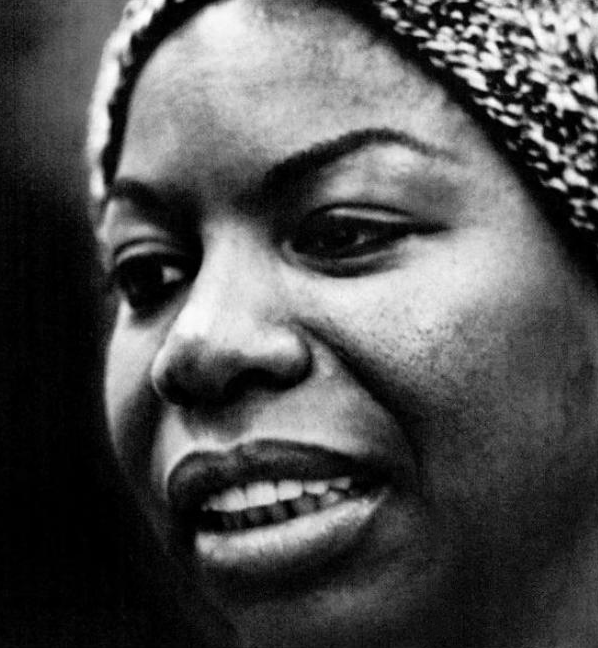
Nina Simone, 1967. Wikimedia Commons.
This week, the Review is publishing a series of short reflections on love songs, broadly defined.
There was a woman who was always explaining to me the structures of the world, of desire, of experience. Her analysis was brilliant. I have never met somebody so sure of the way things work. Between us, they didn’t. In the end, I learned, form was a problem. Well placed constraints can excite; they can also kill. Either way they tend to leave marks. A studied silence, breezy banter—these are not so convincing if she can take you in at a glance and see where you are still mottled from the pressure of her touch. But it is easy to adopt the position of the wounded lover. If you know what love is, like Nina Simone sings it, then you know that you, too, can leave, must have left, someone with lips that can only taste tears.
Nina Simone was not the first to sing “You Don’t Know What Love Is” and her version is not the most famous. That honor probably belongs to Dinah Washington, with her bright and clear voice, or maybe Chet Baker, about whom I have little to say. Billie Holiday’s take, with her enchanting, off-kilter warble is also probably better known. But Simone’s is something else entirely. Hers was released much later on a collection of rare recordings. It is live, noisy, and the background hum nearly merges with the brushes sliding along the snare drum. That and the crowd’s murmurs lend the track a warmth that all the other versions lack. It speaks, in spite of itself, to love’s inexplicable optimism.
At the very beginning, Simone sings, “You don’t know what love is till you’ve learned the meaning of the blues.” That third word, know, hangs for nearly three seconds. She never loses control of her voice, but she makes the word tremble as does a heart, a hand, a jaw fixing itself in preparation for sentences that cannot be retracted. She performs the standard as a lament sung at the precise moment that mourning’s fog has begun to lift. It is not a warning meant to dissuade young lovers. The blues aren’t miserable; they’re knowing. Simone’s spare rendition comes with the wisdom of experience, of understanding that if love is faith, favor, desire, support, and—when it can be afforded—indulgence and forgiveness, then all of these add up. When it turns, you lose so much: a body to hold yours, eyes that blink too fast in pleasure, a voice that drops too low to even hear it, the rippling sensation that settles somewhere just below the chest. All of the things that accumulate in the miracle of that face besides yours in the morning. It is the loss of such a gift that makes clear what it’s worth.
What makes Simone’s song hopeful rather than bitter is the sly implication that she is not actually singing to a novice. “How could you know how lips hurt,” she asks, “till you’ve kissed and had to pay the cost?” But how many listeners don’t know the price, don’t know “how a lost heart fears the thought of reminiscing”? Love is premeditated grief. That makes it no less enticing. When she sings “lips that taste of tears … lose their taste for kissing,” it sounds to me like she is someone who knows the taste will return. “You Don’t Know What Love Is” is for when love has lost the sheen of the most saccharine romances and yet maintains sufficient force to upend a life. It is for all those loves that come after heartbreak. Perhaps they are not as clean, but they may be stronger.
What is remarkable is that there are no recriminations across the song’s five minutes. It turns out it is not the guilt or moral superiority that is universal, but the hurt. “No, you’ll never know,” she finishes off, “what love is.” Then the audience applauds. Someone in the room stamps their foot or pounds on a table. That feels appropriate to me. Words work for some, but others must reach out for something sturdy. Often one slides between these modes. Bliss makes me bristle. Or at least it imparts a similar sensation: the charge in the air has already shifted. I wish it weren’t so. It is too easy to approach love with hunched shoulders. It is too easy to cast a cool eye on simple odes. It is too easy to resort to name-calling, to look askance at the emotion with all its demanding and needing and call it naive. But I think the truest way to speak of love is from just past its bitter end, when you can see what a kiss costs and know you will pay again.
Blair McClendon is a filmmaker, editor and writer. He lives in New York.
from The Paris Review https://ift.tt/Cxb1EHk
Comments
Post a Comment